On December 14, 1960, the General Assembly of the United Nations adopted Resolution A/RES/15/1514. The resolution was a Declaration on Granting of Independence to Colonial Countries and Peoples. This resolution was proposed by Nikita Khrushchev, leader of the communist party and the Soviet Union.
UN background information on the resolution:
The question of a declaration on the granting of independence to colonial countries and peoples was initially proposed for inclusion in the agenda of the General Assembly by Nikita S. Khrushchev, the Chairman of the Council of Ministers of the Union of Soviet Socialist Republics (USSR), during his address to the Assembly on 23 September 1960. . . On 10 October, the General Assembly decided to place the item on its agenda and, on 13 October, a proposal by the USSR to discuss the item in plenary meetings was unanimously adopted.
This was a brilliant strategic move by the communists. Senator John F. Kennedy’s response to it – not so much. He jumped on the bandwagon.
In a thesis paper titled Western Colonialism at the “Razor Edge of Decision”: Anti-Colonial Ideals and Cold War Imperatives in the Presidential Campaign Rhetoric of John F. Kennedy and Richard M. Nixon, August-November 1960 written by Joshua Hager, he quoted from a speech Kennedy gave at Howard University:
Man’s desire to be free is the strongest force not only in this country but around the world. We should associate ourselves with it.”4 In this speech Kennedy linked an ideal of the United States, the pursuit of freedom, with an ideal of colonized peoples coming into independence. As with his quote of September 22nd, the Senator made sure to describe anti-colonialism as the “strongest force” in global politics.
When Kennedy was elected President, he initiated “The Alliance for Progress” for Latin America presumably on the assumption that the concept would never come back around to bite us in the ass. He was wrong and we are now living with the consequences as Marxists try to “free the oppressed peoples” in the Americas and some of the more radical leftists are actually talking about white genocide – not in those exact words but “kill whitey” is out there.
As I was looking through the UN documentation on decolonization, I found Resolution A/RES/66(I) from February 1946:
Some Wiki background:
Alaska was purchased from the Russians in 1867 for $7.2 million. The Alaska Purchase deal was negotiated by Secretary of State William H. Seward (Seward’s Folly). Alaska remained a territory until January 3, 1959 when it became the 49th state.
Hawaii became the 50th state on August 21, 1959
As stated in the first paragraph, the Soviets proposed Resolution UN Resolution A/RES/15/1514 and it was adopted on December 14, 1960. Most interesting timing.
Beginning in 1990, the United Nations began making decade declarations for the Eradication of Colonialism
First International Decade for the Eradication of Colonialism (1990 – 2000)
Second International Decade for the Eradication of Colonialism (2001 – 2010)
Third International Decade for the Eradication of Colonialism (2011 – 2020)
Fourth International Decade for the Eradication of Colonialism : resolution / adopted by the General Assembly
The Decolonization Resolution was the reason that Britain returned control of Hong Kong to China. I was reminded of it as I listened to a CSIS discussion about a new book titled, Transforming Our World: President George H. W. Bush and American Foreign Policy. The following are clips from the video of some of the significant things said:
On 26 November 1976, Willy Brandt is elected president of the Socialist International (SI). In his inaugural address, he announces three offensives of the SI for peace and disarmament, for new North-South relations and for human rights. Moreover, Brandt wants to liberate the International from its “eurocentrism” and make it open to partners from the “Third World.”
The Russian delegation to the United Nations held an event to commemorate the the 60th Anniversary of the UN Declaration on the Granting of Independence to Colonial Countries and Peoples, December 14, 1960 by Nikita Khrushchev.
What I heard in what Catherine Bertini said was the beginning of the global transportation system in Africa. The clues were the words that I highlighted in the video. The cincher was the GIS mapping system of “vulnerable people”. Forget the vulnerable people part. The mapping system was for transportation logistics – to map the logical transportation hubs for ultimate control of global commerce. (Recall that President George Bush reconstituted the U.S. Transportation System signing legislation to fully integrate and automate transportation systems.
People in this country have tried to blame China for the Belt and Road System but Catherine Bertini revealed that it was George H.W. Bush through the United Nations that is responsible for it. Other research on our domestic transportation system that was re-initialized in 1990 by Bush and Skinner, show that Elaine Chao and Andrew Card would have to be added to list of responsible persons.
To date, documentation on the world wide transportation system built for the United Nations includes:
The Trans-Africa system discovered during the Benghazi Research
George Bush, the New Age President
Catherine Bertini mentioned George Bush’s New World Order speech. It wasn’t the speech he gave at a joint session of Congress on September 11, 1990. It was Bush’s United Nations speech given on October 1, 1990 to which she referred. The speech can be viewed on C-Span by clicking HERE. The text of the speech can be read HERE.
Click HERE for Highlights of Bush's speech . . .
Forty-five years ago, while the fires of an epic war still raged across two oceans and two continents, a small group of men and women began a search for hope amid the ruins. And they gathered in San Francisco . . . This is a new and different world. Not since 1945 have we seen the real possibility of using the United Nations as it was designed: as a center for international collective security.
The changes in the Soviet Union have been critical to the emergence of a stronger United Nations.
Let me take this opportunity to make the policy of my government clear. The United States supports the use of sanctions to compel Iraq’s leaders to withdraw immediately and without condition from Kuwait. We also support the provision of medicine and food for humanitarian purposes, so long as distribution can be properly monitored.
In the aftermath of Iraq’s unconditional departure from Kuwait, I truly believe there may be opportunities for Iraq and Kuwait to settle their differences permanently, for the states of the Gulf themselves to build new arrangements for stability, and for all the states and the peoples of the region to settle the conflicts that divide the Arabs from Israel.
But this outrageous disregard for basic human rights does not come as a total surprise. Thousands of Iraqis have been executed on political and religious grounds, and even more through a genocidal poison gas war waged against Iraq’s own Kurdish villagers.
As a world community, we must act not only to deter the use of inhumane weapons like mustard and nerve gas but to eliminate the weapons entirely. And that is why, 1 year ago, I came to the General Assembly with new proposals to banish these terrible weapons from the face of the Earth.
. . . And as we look to the future, the calendar offers up a convenient milestone, a signpost, by which to measure our progress as a community of nations. The year 2000 marks a turning point, beginning not only the turn of the decade, not only the turn of the century, but also the turn of the millennium.
I see a world of open borders, open trade and, most importantly, open minds; a world that celebrates the common heritage that belongs to all the world’s people, taking pride not just in hometown or homeland but in humanity itself. I see a world touched by a spirit like that of the Olympics, based not on competition that’s driven by fear but sought out of joy and exhilaration and a true quest for excellence. And I see a world where democracy continues to win new friends and convert old foes and where the Americas — North, Central, and South — can provide a model for the future of all humankind: the world’s first completely democratic hemisphere. And I see a world building on the emerging new model of European unity, not just Europe but the whole world whole and free.
This is precisely why the present aggression in the Gulf is a menace not only to one region’s security but to the entire world’s vision of our future. It threatens to turn the dream of a new international order into a grim nightmare of anarchy in which the law of the jungle supplants the law of nations.
There are 10 more years until this century is out, 10 more years to put the struggles of the 20th century permanently behind us, 10 more years to help launch a new partnership of nations.
The world remains a dangerous place; and our security and well-being often depends, in part, on events occurring far away. We need serious international cooperative efforts to make headway on the threats to the environment, on terrorism, on managing the debt burden, on fighting the scourge of international drug trafficking, and on refugees, and peacekeeping efforts around the world.
But the world also remains a hopeful place. Calls for democracy and human rights are being reborn everywhere, and these calls are an expression of support for the values enshrined in the United Nations Charter.
Free elections are the foundation of democratic government and can produce dramatic successes, as we have seen in Namibia and Nicaragua. And the time has come to structure the U.N. role in such efforts more formally. And so, today I propose that the U.N. establish a Special Coordinator for Electoral Assistance, to be assisted by a U.N. Electoral Commission comprised of distinguished experts from around the world.
In Bertini’s chapter of the book, she wrote:
Once the Berlin Wall fell, there were multiple initiatives within the United Nations and the broader global community to address the anticipated additional humanitarian needs of people in Eastern Europe and elsewhere. Additionally, the success of independence movements and subsequent governance changes and nongovernmental disrupters throughout Africa were creating more internally displaced people and refugees.
. . .
A small group of ambassadors from Nordic countries, led by the Swedish ambassador Jan Eliasson, began to meet in the summer of 1991 to discuss options and to outline a mandate for the future. Quickly, their informal committee expanded to include the European Union, the United States, the USSR, and other key governments . . .
The U.S. government was part of the effort to create a UN humanitarian coordination function.
The significance of the Swedish Ambassador being involved to discuss options for the future is of course, the Socialist International. The report, Common Responsibilities in the 1990s was the result of a conference in Stockholm and their initiative was the Stockholm Initiative on Global Security and Governance published in the spring of 1991. The report is only 42 pages and is a summary of their plans.
The following is a list of the Summary of Proposals for Peace and Security:
We propose:
1. improved United Nations capabilities for anticipating and preventing conflicts, in particular the establishment of a global emergency system;
2. the elaboration of a global law enforcement arrangement, in line with the United Nations Charter, focussing on the role of sanctions and on military enforcement measures;
3. organizational and financial measures to strengthen the United Nations capabilities for peacekeeping and peace-making operations;
4. Regional Conferences on Security and Cooperation to be tried in regions also outside Europe;
5. that the monitoring of world arms trade, particularly by the United Nations, be strengthened with the purpose of eventually agreeing on global norms, regulating and limiting trade in arms, and focussing on both supplier and recipient countries;
6. a pledge by governments in the industrialized countries to allocate a specific part of the peace dividend for international cooperation;
7. a commitment by governments in the South to substantially reduce their armed forces, with the purpose of creating a peace dividend to be invested in human development.
On January 21, 2015, the Senate Foreign Relations Committee held a hearing at which former National Security Advisors testified. Brent Scowcroft was an advisor to George H.W. Bush. Listen to what he says within the context of the above.
This section will be carried over to a new article
Global Governance
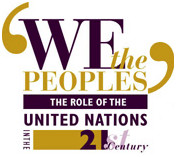 Skipping ahead, the United Nations Millennium Summit which opened on September 5, 2000 was the event at which global governance was announced. In the Secretary-General’s statement to the conference, he recalled the founding date of 1945 and he referenced two of Franklin Delano Roosevelt’s freedoms – freedom from want and freedom from fear – but he left out two of them: freedom of speech and freedom of religion. Under the UN System, there are no rights – only privileges and privileges can be revoked.
Skipping ahead, the United Nations Millennium Summit which opened on September 5, 2000 was the event at which global governance was announced. In the Secretary-General’s statement to the conference, he recalled the founding date of 1945 and he referenced two of Franklin Delano Roosevelt’s freedoms – freedom from want and freedom from fear – but he left out two of them: freedom of speech and freedom of religion. Under the UN System, there are no rights – only privileges and privileges can be revoked.
Note the fact that they planned on having regional hearings which makes sense from a global management level. The majority of nation-states are small and insignificant in terms of the power dynamics of globalization so obviously, global governance is/will be imposed through the regional organizations.
You’ll notice that the United States – North America is not labeled on the map. That’s not an oversight . That’s the plan. The U.S. government is careful not to be directly mentioned in most of the UN documentation. The name of the regional organization is Economic Commission for Latin America and the Caribbean (ECLAC). Canada is a member but the U.S. is not. ECLAC (CEPAL) does however have an office in Washington DC and of course, the U.S., Canada and Mexico are tied together in a customs union/common market by NAFTA (USMCA). This is a link to the UN Regional meeting documentation prepared for the Millennium Summit. See Section II and Section V . Notice the last press release in the list:
UN has a vital role to play in humanizing globalization, achieving social equity in coming century, ECLAC hearing concludes.
SANTIAGO, 2 September (ECLAC) — The humanization of the world economy and of the globalization process, as well as the need to put macroeconomic policies back in touch with the lives of ordinary people are the greatest challenges facing the international community on the threshold of the twenty-first century, stated participants today at the conclusion of the Economic Commission for Latin America and the Caribbean (ECLAC) regional hearing on the future of the United Nations.
Civil society representatives gathered at the Santiago headquarters of ECLAC asserted that “the twenty-first century must be the people’s century”. To this end, the United Nations system must play a critical role in bringing together governments, business organizations, labour unions and civil society at large to develop a conceptual platform for the way ahead.
The United States is a member of the Organization of American States (OAS). Although the history of regional organizing dates back to Simon Bolivar, the present day OAS was established by charter formally in 1948. You can read a background report on the CFR website HERE.
Notice the logo of the Millennium Summit says, We the Peoples. The reason for that is because the plan was to refocus the attention of United Nations operatives (NGOs) towards “the people” in the member countries. In other words, social engineering to break the bonds of national identity and to build the ideology of common purpose, common responsibility, shared global values. In other words, global citizenship. The report from the ECLAC hearings is A/54/718.
Constructing Tyranny through Program Layering

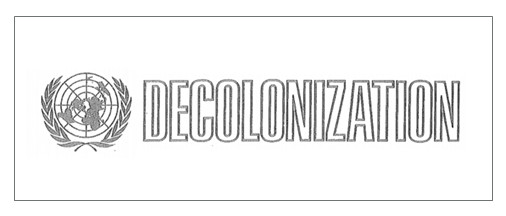
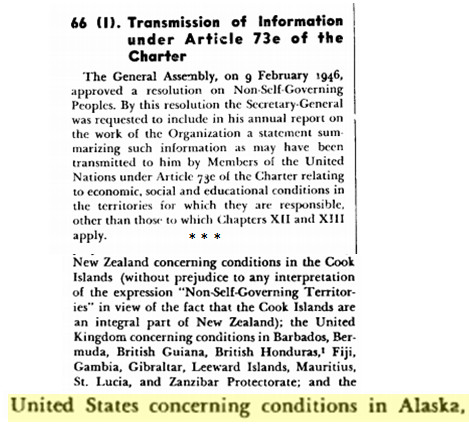

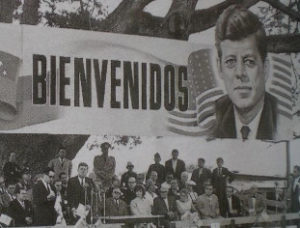
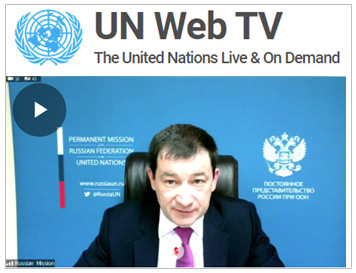
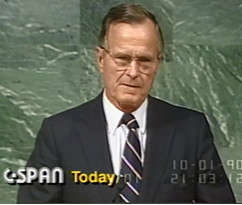
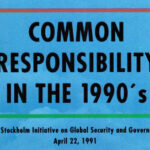
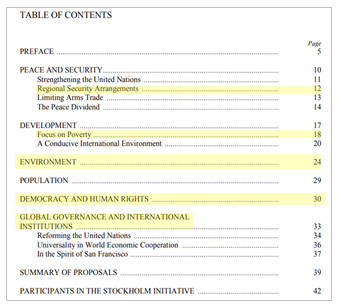
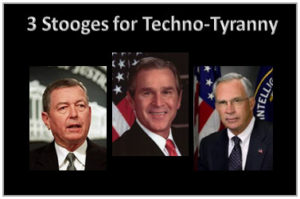
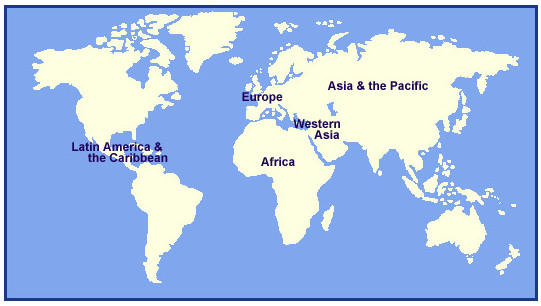




2 Comments
Sanchez
Russia is in Europe you dumb idiots.Official website of the United nation and the European Union countries in Europe.
Russia geography is in Europe. Russia started from Europe and expanded its territory to Siberia. Russia is European.
https://www.un.org/dgacm/ehttps://%5D%5Bwww.schengenvisainfo.com/countries-in-europe/%5Dn/content/regional-groups%5Bhttps://unstats.un.org/unsd/methodology/m49/%5Bhttps://www.worldometers.info/geography/how-many-countries-in-europe/%5D
Vicky Davis
I think you need to brush up on your English comprehension. The article has nothing to do with geography. It has to do with a UN resolution.